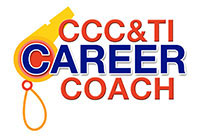CCC&TI offers educational opportunities in Nuclear Medicine Technology on the Caldwell Campus in Hudson, N.C.
The Nuclear Medicine Technology curriculum provides the clinical and didactic experience necessary to prepare students to qualify as entry-level Nuclear Medicine Technologists.
Students will acquire the knowledge and skills necessary to properly perform clinical procedures. These skills include patient care, use of radioactive materials, operation of imaging and counting instrumentation, and laboratory procedures.
Graduates may be eligible to apply for certification/registration examinations given by the Nuclear Medicine Technology Certification Board and/or the American Registry of Radiologic Technologists
CCC&TI offers the following educational programs in this area:
For more information about course descriptions or required courses, refer to the current CCC&TI Course Catalog and its corresponding Addendum.
Admission Requirements for the Nuclear Medicine Technology DEGREE program:
Admission Requirements for the Nuclear Medicine Technology DIPLOMA program:
If you are interested in the Nuclear Medicine Technology program, please let us know by clicking on the link below and completing the form:
The DOL's Occupational Outlook Handbook states, "Technologists are on their feet for long periods and may need to lift or turn patients who are disabled… Most nuclear medicine technologists work full time. Because imaging is sometimes needed in emergencies, some nuclear medicine technologists work evenings, weekends, or on call. Although radiation hazards exist in this occupation, they are minimized by the use of gloves and other shielding devices. Nuclear medicine technologists wear badges that measure radiation levels in the radiation area. Instruments monitor their radiation exposure and detailed records are kept on how much radiation they get over their lifetime. When preparing radioactive drugs, technologists use safety procedures to minimize radiation exposure to patients, other healthcare workers, and themselves. Like other healthcare workers, nuclear medicine technologists may be exposed to infectious diseases."
Bureau of Labor Statistics, U.S. Department of Labor, Occupational Outlook Handbook, 2014-15 Edition, Nuclear Medicine Technologists, on the Internet at http://www.bls.gov/ooh/healthcare/nuclear-medicine-technologists.htm (visited May 25, 2015).
Nuclear medicine will continue to be a field at the forefront of modern clinical medicine and technological development. The future has never been brighter thanks to:
(Society of Nuclear Medicine and Molecular Imaging, Technologist Career Brochure on the internet
http://s3.amazonaws.com/rdcms-snmmi/files/production/public/docs/2061%5FEducationBrochr%5FFinal%2Epdf. (Visited December 2019.)
 AAS: Nuclear Medicine Technology
AAS: Nuclear Medicine Technology
 Diploma: Nuclear Medicine Technology
Diploma: Nuclear Medicine Technology
There are no additional costs for this program outside of tuition, fees, books, and supplies.